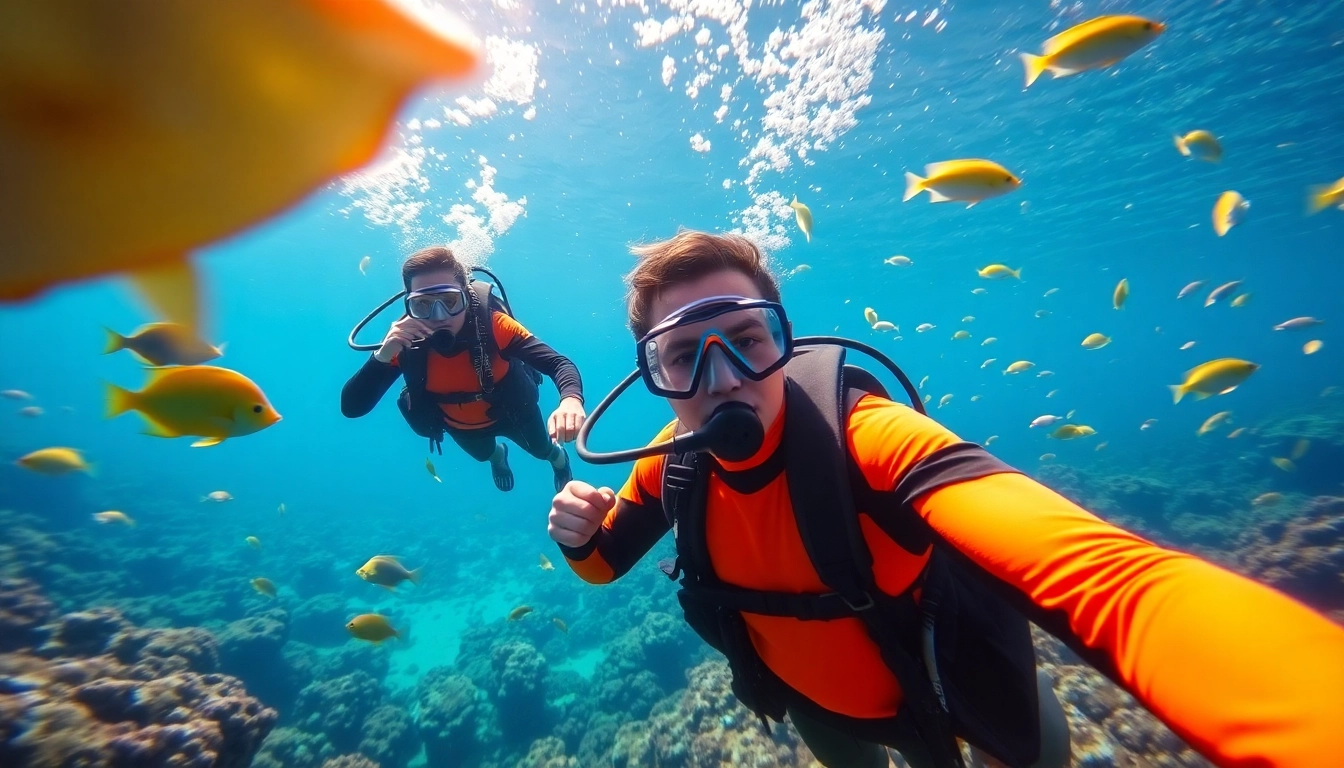Understanding Bali Diving Course Options
Bali is renowned for its stunning underwater landscapes and vibrant marine life, making it a prime location for scuba diving enthusiasts. If you’re looking to immerse yourself in this world, enrolling in a Bali diving course is an excellent starting point. There are various courses available, catering to different skill levels and objectives. This section will delve into the types of courses you can expect.
Overview of Course Types
Bali diving courses can primarily be categorized into two groups: recreational and professional. Recreational courses are designed for those seeking fun and adventure beneath the waves, while professional courses aim to train divers in teaching, guiding, or managing diving activities.
Recreational Diving Courses
Recreational courses typically include the following:
- Discover Scuba Diving: This introductory course is perfect for those who want to experience scuba diving without committing to a full certification. Participants learn basic safety guidelines and skills during a short, supervised dive.
- PADI Open Water Diver: Fundamental for all divers, this comprehensive course covers essential skills and theory. It usually lasts 3-4 days and includes confined water training and open water dives.
- Advanced Open Water Diver: For those who have already completed the Open Water course, the Advanced Certificate allows divers to explore deeper water and enhance specific skills.
Professional Diving Courses
When pursuing a career in diving, professional courses available in Bali include:
- Divemaster: This course prepares you to lead dives, assist instructors, and gain essential leadership skills.
- Instructor Development Course (IDC): Designed for experienced divers, this course enables you to teach and certify other divers.
Choosing the Right Skill Level
Choosing the right course hinges on your experience and aspirations. If you are a beginner, starting with the Discover Scuba Diving or the PADI Open Water Diver course is advisable. For seasoned divers, the Advanced and professional courses are valuable options to enhance skills and explore career opportunities.
Pricing and Packages for Bali Diving Course
Typical Costs and What to Expect
The price of Bali diving courses varies based on duration, depth of instruction, and certification level. Typically, introductory courses range from $150 to $350. Open Water courses are priced between $350 and $500, while advanced courses can exceed $500 depending on additional features like eco-tour experiences or specialized training.
Comparing Diving Packages
Various dive centers offer packages that may include accommodations, meals, and extra activities. When comparing packages, consider the following:
- Duration of the course
- Included equipment rentals
- Insurance options and coverage
- Student-to-instructor ratios to ensure safety and personalized attention
Seasonal Pricing Fluctuations
Pricing for Bali diving courses may fluctuate based on the season. High season, generally from June to September, tends to be pricier due to increased demand. Conversely, visiting during low season (such as November through March) may yield discounts, making diving more affordable.
Top Locations for Bali Diving Course
Must-Visit Dive Sites
Bali features numerous spectacular dive sites that cater to all skill levels. Noteworthy locations include:
- Blue Hole: Renowned for its vibrant coral reefs and diverse aquatic life, this site is best suited for experienced divers.
- Liberty Wreck: An accessible wreck dive, ideal for beginners and advanced divers alike, famous for its colorful marine fauna.
- Padang Bai: This site offers varied dives, including drift diving and shallow reefs.
Accessibility and Transportation
Most dive sites in Bali are easily accessible by boat or road. Diving centers often provide transportation services or can guide you on how to reach the sites. It is wise to check ahead of time for the best transportation options and plan your dives accordingly.
Environmental Considerations when Diving
Preserving Bali’s coral reefs is paramount. Divers are encouraged to follow eco-friendly practices, such as:
- Avoiding contact with corals and marine life
- Using reef-safe sunscreen
- Participating in conservation activities when available
Preparing for Your Bali Diving Course
Essential Gear and Equipment
While many dive shops provide rental gear, some divers prefer using their own equipment for comfort and hygiene. Essential gear includes a wetsuit, mask, snorkel, fins, buoyancy control device (BCD), regulator, and dive computer. Ensure that your gear is well-maintained and suitable for the water conditions in Bali.
Health and Safety Precautions
Health and safety are crucial in scuba diving. Make sure to consult with a physician before diving, especially if you have pre-existing health conditions. Additionally, staying hydrated and observing safe diving practices reduces the risks associated with diving.
Common Challenges and How to Overcome Them
Many divers face challenges like equalizing pressure or experiencing anxiety under water. Here are strategies to help:
- Practice equalization techniques before and during your dives to alleviate ear pressure.
- Breath control exercises can help combat anxiety and enhance buoyancy.
- Practice in calm waters before attempting more challenging dive sites.
Post-Course Opportunities in Bali
Advanced Diving Courses and Specializations
Once certified, divers can pursue advanced courses such as technical diving, night diving, or underwater photography. Specializations offer unique experiences and enhance skills in specific areas, allowing divers to enjoy Bali’s underwater ecosystem even more.
Internship and Employment Options
For those looking to build a career in diving, many dive centers in Bali offer internship programs. These opportunities allow you to gain practical experience, develop teaching skills, and even work your way up to becoming a Divemaster or Instructor.
Maintaining Skills After Certification
Continuing education is vital for divers to maintain their skills and stay current with best practices. Regular diving, engaging in refresher courses, and participating in diving community events help ensure that divers remain proficient and confident in their skills.
